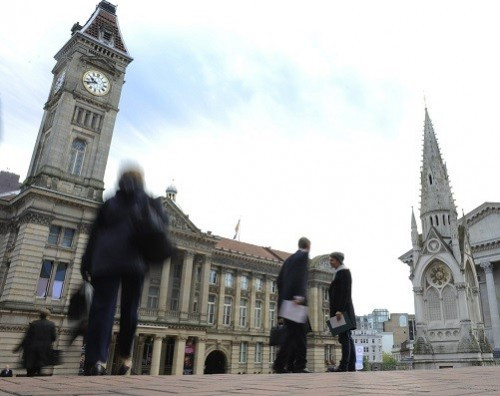Ed Miliband Promises Biggest Economic Devolution for Century

Ed Miliband has unveiled an election manifesto pledge to devolve at least £20bn of cash to Britain's cities and regions to enable them to compete with London in boosting employment and their local economies.
Speaking in Birmingham, Miliband claimed his initiative would represent "the biggest economic devolution of power to England's great towns and cities in 100 years".
"The country that once built its prosperity on the great towns and cities, like Birmingham, Bristol, Liverpool, Manchester, Glasgow and Cardiff has become a country which builds its prosperity far too much on one city, London.
"We are determined to make our great cities and towns the powerhouses for the creation of good jobs," he said.
Each and every authority which can bring forward plans of this sort in the first year of the next Parliament, will receive powers and access to resources from Whitehall the like of which we have not seen in living memory.
The move is certainly significant, not only because it aims to address the huge disparities between the economies and employment records of London and the rest of the country, but also because it answers the complaint that Miliband is not offering anything "bold" from a Labour government.
And giving power and money away at this level is certainly bold. But we have heard this sort of thing before from parties of all colours.
Slogans about localism, devolution, ending the north-south divide and giving "power to the people" have been bandied about by successive governments. Most recently former Tory minister Michael Heseltine was charged by David Cameron with outlining just such a growth strategy.
Heseltine's report "No Stone Unturned" offered similarly radical proposals for massive devolution of power and £49bn cash away from Whitehall to the regions but, Labour claim, has remained largely un-implemented.
Miliband said his own "Growth Review", led by former Labour minister Andrew Adonis, would take a similarly radical approach, but would produce results within the first months of a Labour government.
He has written to every regional council leader, university and Local Enterprise Partnership asking them to draw up joint plans to boost growth and private sector jobs in their regions.
Any group that presents a proposal to the Labour government could be handed new powers over transport and housing infrastructure funding, as well as job creation and skills training and economic development.
"Each and every authority which can bring forward plans of this sort in the first year of the next Parliament, will receive powers and access to resources from Whitehall the like of which we have not seen in living memory," Miliband said.
The initiative was widely welcomed and appears to go beyond mere manifesto promises.
However there were some concerns that it might not connect with voters. One Labour MP said: "This is certainly a bold promise but I do wonder if it will create much of an impact with ordinary voters."
And there is undoubtedly a credibility gap between voters and politicians when it comes to implementing such bold promises which they may simply file under the heading "we will believe it when we see it".
Miliband will be hoping that, by writing to local leaders he will be creating a sense of movement that will prove this is not merely another devolution policy that will be devolved to the back shelf.
© Copyright IBTimes 2025. All rights reserved.






















